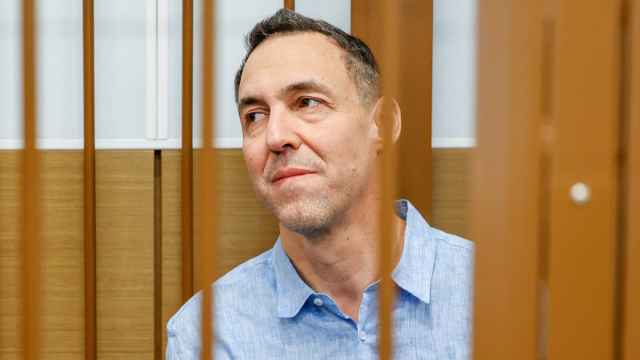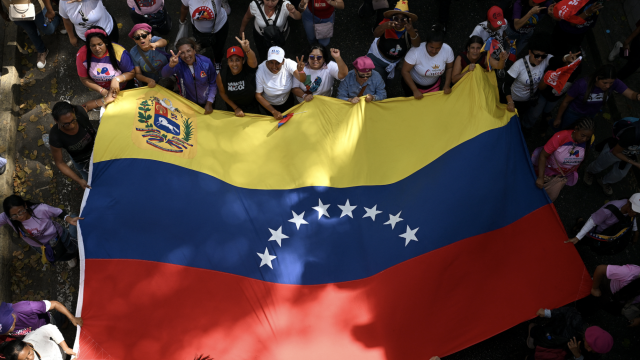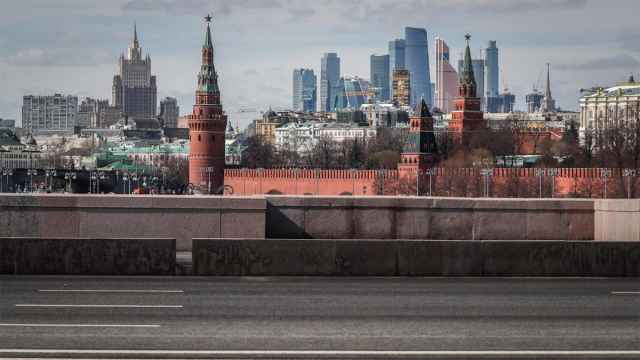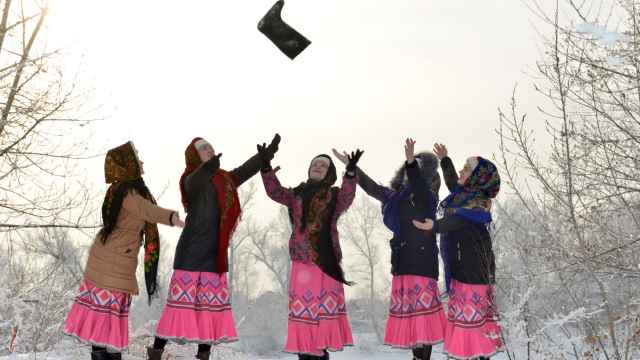The detained leader of the most prominent human rights group in Belarus faces up to seven years in jail for helping political prisoners and government critics, the group said Friday.
Police detained Ales Belyatsky of the Vesna group outside his home in the capital, Minsk, on Thursday and also conducted searches in his apartment, country house and the group's offices.
The U.S. Embassy in Minsk condemned Belyatsky's detention as "another, unfortunate sign of Belarus' self-isolation and further deviation from European standards and principles."
Belyatsky faces up to seven years in jail on charges of "concealment of income," the group said in a statement. It said Belyatsky received large amounts of cash in neighboring Lithuania from the group's Western donors since his group was officially barred from receiving grants in Belarus.
The charges against Belyatsky "are punishment and revenge for many years of his work as a human rights advocate," said the statement posted on the group's web site.
The group criticized Lithuanian authorities for providing information on Belyatsky's activities to Belarussian police, saying their cooperation "created favorable conditions for initiating a criminal case" against him.
But a Lithuanian Justice Ministry official said the country wasn't aware of the intentions of neighboring Belarus to use the information against an opposition member. The ministry said it will now cut off communication channels that were used to provide legal information to Belarus.
"These agreements were quite convenient in criminal or civil cases, but now that we see that they use the data for political purposes, we stop providing information," Vice Justice Minister Tomas Vaitkevicius said.
Since 1996, Vesna has provided legal assistance to thousands of Belarussians who were fined, arrested or imprisoned for criticizing President Alexander Lukashenko's authoritarian policies.
In 2003, authorities terminated the group's official registration for reporting violations during the presidential elections.
Vesna has also been active in reporting on the police crackdown on a recent series of peaceful rallies that have reflected mounting public discontent against Lukashenko whom the West has dubbed "Europe's last dictator."
The German government's human rights commissioner, Markus Löning, demanded Belyatsky's immediate release. Germany "condemns in the strongest terms this political abuse of criminal law," Löning said in a statement.
Lukashenko, who has ruled the nation of 10 million people for nearly 17 years, won another term in December's election, which was criticized by international observers.
Meanwhile, Europe's main security and rights watchdog delivered one of its sharpest attacks on Belarus, saying Friday that Minsk was systematically persecuting the opposition and civil society while gagging the media.
The Vienna-based Organization for Security and Cooperation in Europe has been a vocal critic of a crackdown on opposition protesters and journalists following Belarus' disputed presidential election in December.
Belarus, which is under U.S. and European Union sanctions over the clampdown, describes itself as a victim of discrimination and says the OSCE has double standards.
Using some of his strongest language so far, OSCE Chairperson-in-Office Audronius Azubalis condemned the government's actions, including the arrest of Belyatsky, which he called "the latest example of persecution."
"Trials of the participants in the Dec. 19 demonstrations, systematic stifling of the media and freedom of assembly, and the continued persecution of opposition figures, nongovernmental organizations and civil society attest to the serious deterioration of the human rights situation in Belarus," Azubalis, who is also foreign minister in Lithuania, said in a statement.
"I call on the authorities to immediately and unconditionally release all political prisoners and civil society activists."
Police arrested nearly 700 demonstrators and reporters during a night of protests after the December election, which reinstated Lukashenko.
Azubalis has received some support for his stance at the 56-nation OSCE.
A group of 14 Western states, led by the Czech Republic and backed by the United States, has been trying to raise diplomatic pressure on Belarus at the Vienna diplomatic body.
They asked the OSCE to carry out a rare report on human rights in Belarus — which concluded in June that the state was using fear, harassment, torture and blackmail in its clampdown.
The findings infuriated Belarus, which had already forced the OSCE to close its field office there after election monitors raised concerns about the conduct of the vote and its aftermath.
Azubalis said Belarus must comply with its OSCE commitments, which include upholding a democratic society, allowing free media and protecting human rights.
(AP, Reuters)
A Message from The Moscow Times:
Dear readers,
We are facing unprecedented challenges. Russia's Prosecutor General's Office has designated The Moscow Times as an "undesirable" organization, criminalizing our work and putting our staff at risk of prosecution. This follows our earlier unjust labeling as a "foreign agent."
These actions are direct attempts to silence independent journalism in Russia. The authorities claim our work "discredits the decisions of the Russian leadership." We see things differently: we strive to provide accurate, unbiased reporting on Russia.
We, the journalists of The Moscow Times, refuse to be silenced. But to continue our work, we need your help.
Your support, no matter how small, makes a world of difference. If you can, please support us monthly starting from just $2. It's quick to set up, and every contribution makes a significant impact.
By supporting The Moscow Times, you're defending open, independent journalism in the face of repression. Thank you for standing with us.
Remind me later.





